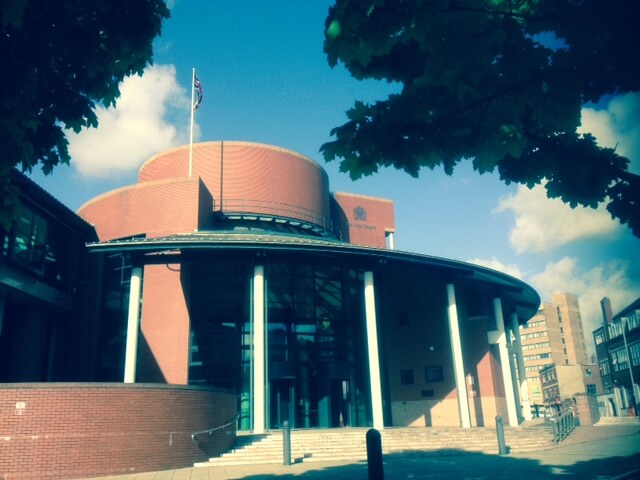When do you need an expert?
If you are involved in a dispute that can not be settled quickly by negotiation, you may be forced to contemplate ‘Legal Action’ – perhaps to obtain compensation or enforce an agreement or contract with your supplier or client. Although you may be convinced that you have a ‘strong case’ based on the ‘known facts’, rushing into Legal Action should be avoided – because the process may prove very time consuming and expensive while causing irreparable damage to your business and personal relationships.
in a dispute that can not be settled quickly by negotiation, you may be forced to contemplate ‘Legal Action’ – perhaps to obtain compensation or enforce an agreement or contract with your supplier or client. Although you may be convinced that you have a ‘strong case’ based on the ‘known facts’, rushing into Legal Action should be avoided – because the process may prove very time consuming and expensive while causing irreparable damage to your business and personal relationships.
If however, you are contemplating or involved in legal action, you will need to obtain advice from a qualified solicitor who will explain the legal process, and advise you how to proceed.
If the dispute depends, as it often does, on the analysis and interpretation of factual evidence, your solicitor may suggest that you also need an ‘Expert’ to help you understand the evidence and explain it to the Court. This may be essential if your are challenging other people’s professional judgement – for example how a product or process has been designed or manufactured – because you will not have the knowledge or credibility to explain what was wrong in court
How can you find an Expert?
Your solicitor may recommend an Expert with experience of the matters in dispute, who is competent to ‘give an opinion’ and act as an expert during litigation. Although your solicitor’s professional network may include experts in some disciplines such as accountants and building surveyors that they have worked with previously, they may not know any Experts with the knowledge and experience required to investigate and explain your particuar case . Fortunately, there are directories that list Experts in different disciplines and these include, among others:-
- The Academy of Experts http://www.academyofexperts.org/find-an-expert
- Institute of Mechanical Engineers http://www.imeche.org/services/business/skillfair-consultants-directory
- Expert Witness (,co.uk) http://www.expertwitness.co.uk/
You should obviously look for an expert with relevant knowledge and experience, who is competent to give an opinion based on the evidence in your case. This may be based on their industry experience or academic qualifications, but their ability to communicate complex technical arguments to a non-specialist audience is perhaps the hall-mark of a true expert.
What does an expert do?
Experts are required to form an independent opinion based on the evidence presented to them, and to ‘explain the evidence’ to the court. Depending on the nature of the case this may require them to examine any physical evidence, witness statements and other documentation that is relevant to the case. To help them, you or your solicitor would be expected to provide the Expert with written instructions explaining what the dispute was about, and the questions that they should address in their reports.
Your expert may offer you a ‘preliminary opinion’ or ‘advisory report’ that outlines the strengths and weakness of your case with a ‘plan to investigate and confirm’ their preliminary findings, and this may allow you decide if the case is worth pursuing – before you become so financially and emotionally committed that you become reluctant to abort the proceeding.
During their investigation the Expert should be given access to ‘all relevant evidence’ and you must not withhold any evidence in your possession that might undermine your case. The expert may identify additional evidence or information that you can ask the other parties to provide during the process of discovery, but they are required to give the court impartial advice at all times, based on the available evidence.
When their investigations are complete the Expert will provide a report, which must comply with CPR35 (Civil Proceedings Rule 35). The Academy of Experts has recently published an Information Sheet explaining how these are rules are interpreted in the English Courts, and a copy can be down loaded from their website.
Can opposing parties appoint Experts?
Yes, both sides may appoint experts to investigate the claims being made and prepare their case.
What happens when the Experts disagree?
If the exerts appointed to examine the evidence do not agree, or their opinions are disputed, the court may require opposing experts to prepare a Experts Joint Report that details:-
- What they agree about
- What they disagree about
- The reasons for any disagreement between them
Although, such disagreements may be avoided when the experts have access to the same evidence and act as impartial advisers to the court, rather than advocates for their clients point of view, genuine differences of technical opinion may arise when interpreting complex evidence or discussing ‘best practice’ in particular situations.
When there are significant or material differences of opinion between the experts, the Judge will decide on the balance of probabilities which expert’s opinion can be trusted when deciding the case.
Summary
Experts perform an important function in the legal system, investigating the available evidence, forming independent and impartial opinions, and helping the Court understand and interpret evidence that may be highly technical. (However, in my experience the judge may also have a second qualification in engineering or another technical subject!)
In the early stages of litigation, Expert’s Reports are used to assess the strength of the claims made by both sides and focus the legal arguments on points of disagreement – hopefully reducing the duration and costs of litigation.
An important and effective test of an Expert’s impartiality is to ask ‘Would your opinion and advice remain the same if you were instructed by the opposing parties?’
An Expert must therefore consider carefully alternative points of view, and explain the reasoning behind there opinion for the benefit of the their clients. the Courts and the opposing parties – in the hope that reason may prevail and a negotiated settlement may be reached. However, the Expert’s role is limited to the evaluation and interpretation of the evidence that is within their area of technical competence – and although their evidence may be crucial in the Court’s deliberations they must not become an advocate for either party.
Experts may also offer advice to their instructing solicitors, by reviewing and critiquing arguments put forward by the opposing parties – in order to ensure that the legal debate ‘is well informed’ – and must be willing to tell their client that the case is ‘unwinable’ or that the costs of fully investigating the claims may be disproportionate, when that is the case.
However, as Experts are constrained by Civil Procedure Rules (CPR35) and and must remain completely impartial in the advice they offer, they may not accept any from of ‘payment by results’ that depends on the outcome of the case – and to protect their impartiality clients can not refuse to pay if an Expert they have instructed disagrees with their case.
About the Author
Phil Stunell MSc, C.Eng.M.I.Mech.E has acted as an expert witness in Product Liability litigation and has a special interest in the design and development of vehicles and their component systems. Stunell Technology does not provide legal advice and strongly recommends that you obtain legal advice from a qualified solicitor if contemplating or involved in any form of legal action.
